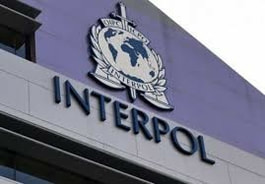Introduction:
Similar to the previous articles on the repatriation process in El Salvador, Honduras and Mexico [1], this article looks at the Guatemalan repatriation process and how that government tracks its citizens. In immigration hearings, the U.S. government regularly asserts that respondents who are threatened by gangs can relocate to other areas of, obtain jobs, and function normally without detection. Nevertheless, there are a number of mechanisms the Guatemalan government uses in order to know where its citizens live. Given that the Guatemalan bureaucracy has been compromised by officials under the pay of gangs or been infiltrated by gang members themselves, gangs can use these same databases to track persons of interest and continue to threaten them. It is highly probable, therefore, that no person can prevent gangs finding out where they live in the long term.
Repatriation Process:
When a repatriated citizen is returned to Guatemala, authorities have a good deal of information on each person through the Department of Homeland Security (DHS) Form I-216 and the U.S. Criminal History
Information Sharing (CHIS) agreement. For brevity sake, the previous articles in this series have discussed the DHS Form I-216 and the CHIS in more detail [2] [3]. The DHS and CHIS information is augmented by several necessary disclosures each returnee must do in order to move throughout Guatemala, hold a job, or drive a vehicle.
Identification:
Guatemalan citizens must have some sort of identification. Recent deportees can carry a U.S. identification such as a state driver’s license. Nevertheless, U.S. identification are not accepted for most transactions. The Documento Personal de Identificacion or DPI as it is commonly known, is the most widely used form of identification in Guatemala. The National Population Registry started implementing a state-of-the-art identity card in 2014. This includes an automated Fingerprint Identification System (AFIS) and facial recognition biometrics. When a Guatemalan citizen enrolls in the program, two fingerprints are taken and a faceprint is made using advanced facial recognition software.[4]
Driver’s License:
Obtaining a driver’s license in Guatemala is separate from the application for the DPI. Maycom, a government entity, manages all drivers licensing across Guatemala. Once approved to drive, the driver is put into a central database to monitor traffic-related activities. The driver's license must be renewed every year. One-year costs 100 quetzals. During initial licensing and renewals, proof of current address as well as the DPI must be presented.[5]
Utility Companies:
There are three large electric companies in Guatemala:
Like other utilities such as the telephone company, these utility companies track those who pay for their services. They have a database of names and addresses of their customers and regularly update their customer lists in order to efficiently collect outstanding payments [6].
Conclusion:
The point of this article is to show that repatriated Guatemalan citizens are effectively tracked by their government from documents and CHIS data given to it by U.S. authorities, to registering for national identification, driver licensure, and utility usage. At each point, a residential address must be given. This information is stored by Guatemalan authorities which allows them to know the location of each of their citizens.
As noted earlier, during deportation hearings, respondents are regularly asked by the U.S. government about their ability to hide or find employment in other areas of Guatemala and thus avoid gang detection. Gangs can co-opt government, law enforcement officials, or utility company employees to obtain addresses or other information from persons of interest.
This leaves repatriated Guatemalans who fear gangs having to drop out of society in order to stay safe—meaning having no government identification, the ability to obtain good paying work, operate a motor vehicle, or direct access to utilities such as electricity or telephone. Thus, for those repatriated Guatemalans who want to reintegrate into society and lead normal lives, they leave themselves open to detection from the same gangs they fear.
Endnotes:
[1] The following are the links to the three previous articles: http://discuss.ilw.com/articles/articles/388682-article-the-mexican-repatriation-process-and-arguments-of-relocation-in-u-s-immigration-hearings-by-robert-kirkland-and-duncan-breda; http://discuss.ilw.com/articles/articles/389907-article-the-repatriation-process-in-el-salvador-and-arguments-of-relocation-in-u-s-immigration-hearings-by-robert-kirkland-and-duncan-breda; http://discuss.ilw.com/articles/articles/391682-article-the-repatriation-process-in-honduras-and-arguments-of-relocation-in-u-s-immigration-hearings-by-robert-kirkland
[2] U.S. Department of Homeland Security, “Detainee Transfers,” December 2016, accessed at: https://www.ice.gov/doclib/detention-standards/2011/7-4.pdf
[3] Robert Kirkland and Duncan Breda, “The U.S. Criminal History Information Sharing Program and El Salvador’s Decree 717,” May 30, 2018, accessed at: http://discuss.ilw.com/showthread.php?44519-Article-The-U-S-Criminal-History-Information-Sharing-Program-and-El-Salvador%92s-Decree-717-By-Robert-Kirkland-and-Duncan-Breda&highlight=kirkland
[4] “The Guatemala National Identity Card,” Entrust Datacard, 2013, accessed at: https://www.datacard.com/id/knowledge_center/knowledge_center_detail.jsp?id=repositories/downloads/xml/GOV_SS_GuatemalaNID.xml
[5] For information on the Guatemalan driver’s license, see: http://maycom.com.gt
[6] “Electricity Regulation in Guatemala: Overview,” Thomson Reuters Practical Law, March 1, 2019, accessed at: https://uk.practicallaw.thomsonreuters.com/w-009-9340?transitionType=Default&contextData=(sc.Default)&firstPage=true&bhcp=1;
Similar to the previous articles on the repatriation process in El Salvador, Honduras and Mexico [1], this article looks at the Guatemalan repatriation process and how that government tracks its citizens. In immigration hearings, the U.S. government regularly asserts that respondents who are threatened by gangs can relocate to other areas of, obtain jobs, and function normally without detection. Nevertheless, there are a number of mechanisms the Guatemalan government uses in order to know where its citizens live. Given that the Guatemalan bureaucracy has been compromised by officials under the pay of gangs or been infiltrated by gang members themselves, gangs can use these same databases to track persons of interest and continue to threaten them. It is highly probable, therefore, that no person can prevent gangs finding out where they live in the long term.
Repatriation Process:
When a repatriated citizen is returned to Guatemala, authorities have a good deal of information on each person through the Department of Homeland Security (DHS) Form I-216 and the U.S. Criminal History
Information Sharing (CHIS) agreement. For brevity sake, the previous articles in this series have discussed the DHS Form I-216 and the CHIS in more detail [2] [3]. The DHS and CHIS information is augmented by several necessary disclosures each returnee must do in order to move throughout Guatemala, hold a job, or drive a vehicle.
Identification:
Guatemalan citizens must have some sort of identification. Recent deportees can carry a U.S. identification such as a state driver’s license. Nevertheless, U.S. identification are not accepted for most transactions. The Documento Personal de Identificacion or DPI as it is commonly known, is the most widely used form of identification in Guatemala. The National Population Registry started implementing a state-of-the-art identity card in 2014. This includes an automated Fingerprint Identification System (AFIS) and facial recognition biometrics. When a Guatemalan citizen enrolls in the program, two fingerprints are taken and a faceprint is made using advanced facial recognition software.[4]
Driver’s License:
Obtaining a driver’s license in Guatemala is separate from the application for the DPI. Maycom, a government entity, manages all drivers licensing across Guatemala. Once approved to drive, the driver is put into a central database to monitor traffic-related activities. The driver's license must be renewed every year. One-year costs 100 quetzals. During initial licensing and renewals, proof of current address as well as the DPI must be presented.[5]
Utility Companies:
There are three large electric companies in Guatemala:
- EEGSA, which serves the departments of Guatemala, including Guatemala City, Sacatepéquez, Escuintla, Chimaltenango, Jalapa and Santa Rosa.
- DEOCSA, which serves the south-western region of the country.
- DEORSA, which serves the northern and eastern regions of the country.
Like other utilities such as the telephone company, these utility companies track those who pay for their services. They have a database of names and addresses of their customers and regularly update their customer lists in order to efficiently collect outstanding payments [6].
Conclusion:
The point of this article is to show that repatriated Guatemalan citizens are effectively tracked by their government from documents and CHIS data given to it by U.S. authorities, to registering for national identification, driver licensure, and utility usage. At each point, a residential address must be given. This information is stored by Guatemalan authorities which allows them to know the location of each of their citizens.
As noted earlier, during deportation hearings, respondents are regularly asked by the U.S. government about their ability to hide or find employment in other areas of Guatemala and thus avoid gang detection. Gangs can co-opt government, law enforcement officials, or utility company employees to obtain addresses or other information from persons of interest.
This leaves repatriated Guatemalans who fear gangs having to drop out of society in order to stay safe—meaning having no government identification, the ability to obtain good paying work, operate a motor vehicle, or direct access to utilities such as electricity or telephone. Thus, for those repatriated Guatemalans who want to reintegrate into society and lead normal lives, they leave themselves open to detection from the same gangs they fear.
Endnotes:
[1] The following are the links to the three previous articles: http://discuss.ilw.com/articles/articles/388682-article-the-mexican-repatriation-process-and-arguments-of-relocation-in-u-s-immigration-hearings-by-robert-kirkland-and-duncan-breda; http://discuss.ilw.com/articles/articles/389907-article-the-repatriation-process-in-el-salvador-and-arguments-of-relocation-in-u-s-immigration-hearings-by-robert-kirkland-and-duncan-breda; http://discuss.ilw.com/articles/articles/391682-article-the-repatriation-process-in-honduras-and-arguments-of-relocation-in-u-s-immigration-hearings-by-robert-kirkland
[2] U.S. Department of Homeland Security, “Detainee Transfers,” December 2016, accessed at: https://www.ice.gov/doclib/detention-standards/2011/7-4.pdf
[3] Robert Kirkland and Duncan Breda, “The U.S. Criminal History Information Sharing Program and El Salvador’s Decree 717,” May 30, 2018, accessed at: http://discuss.ilw.com/showthread.php?44519-Article-The-U-S-Criminal-History-Information-Sharing-Program-and-El-Salvador%92s-Decree-717-By-Robert-Kirkland-and-Duncan-Breda&highlight=kirkland
[4] “The Guatemala National Identity Card,” Entrust Datacard, 2013, accessed at: https://www.datacard.com/id/knowledge_center/knowledge_center_detail.jsp?id=repositories/downloads/xml/GOV_SS_GuatemalaNID.xml
[5] For information on the Guatemalan driver’s license, see: http://maycom.com.gt
[6] “Electricity Regulation in Guatemala: Overview,” Thomson Reuters Practical Law, March 1, 2019, accessed at: https://uk.practicallaw.thomsonreuters.com/w-009-9340?transitionType=Default&contextData=(sc.Default)&firstPage=true&bhcp=1;


 RSS Feed
RSS Feed
